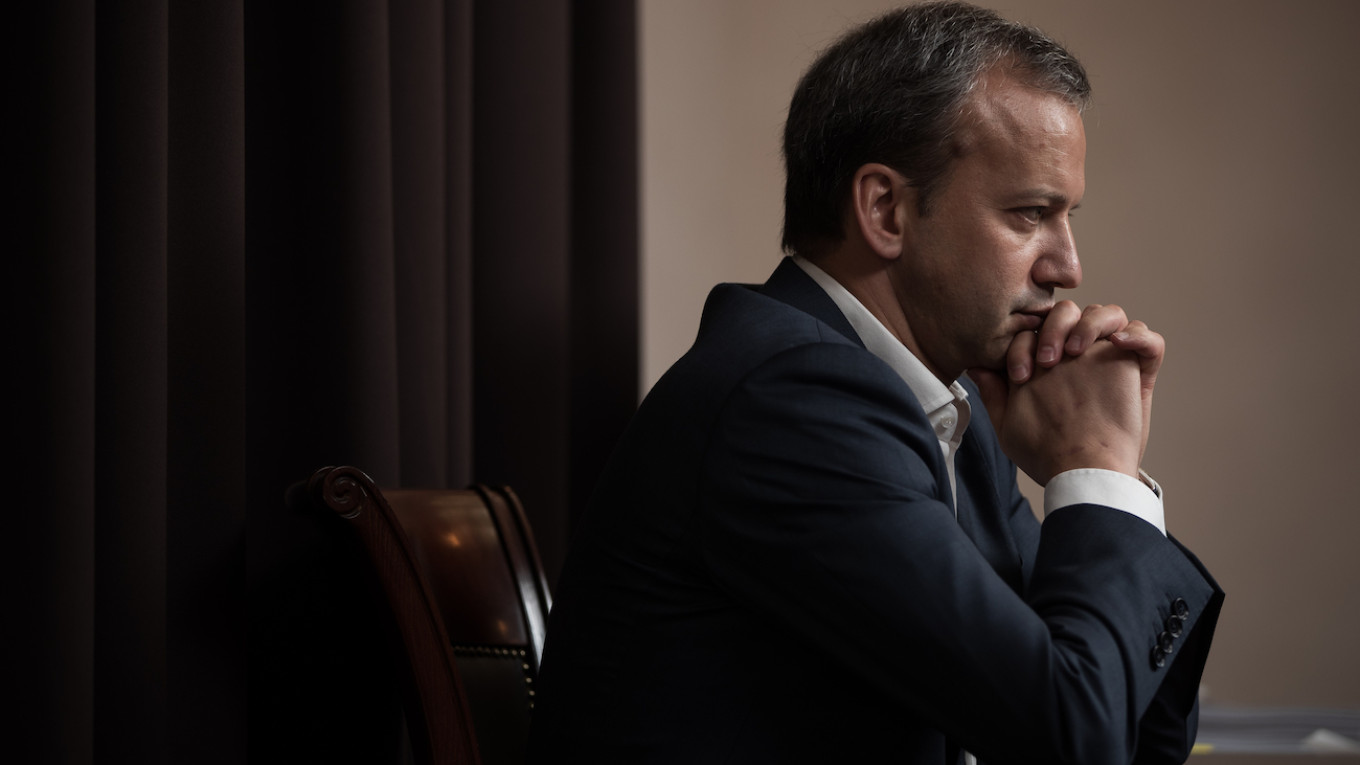The reelection of a Russian former deputy premier as head of the international chess federation was a "victory" for Moscow, the Kremlin said on Sunday.
The reelection of Arkady Dvorkovich as FIDE president was "clearly very good news and a very significant victory," Kremlin spokesman Dmitry Peskov was quoted by the TASS news agency as saying.
"It's very cool. This is an important organization, with lots of work to be done, and we hope Dvorkovich will be successful in this work," Peskov said.
In the race for the top job at FIDE, 50-year-old Dvorkovich, — who served as deputy prime minister under President Vladimir Putin from 2012 until 2018 — saw off Ukrainian challenger, grandmaster Andriy Baryshpolets, who accused him of being part of Moscow's "war machine."
But a crushing majority of 157 out of 179 national chess associations voted for his re-election in a meeting in India.
Baryshpolets, who challenged Dvorkovich with running mate Peter Heine Nielsen of Denmark — coach of Norwegian world champion Magnus Carlsen — won just 16 votes. There were five abstentions and one invalid vote.
Numerous Russian officials have been hit with sanctions since Moscow sent troops into Ukraine in February, and Russian competitors have been banned by numerous international sports governing bodies.
Dvorkovich, 50, who was first elected as FIDE president in 2018, appeared to criticize Russia's offensive in Ukraine in March when he said that his "thoughts [go] to Ukraine's civilians."
But following the backlash that the remarks sparked in Russia, he back-pedaled, saying there was "no room for Nazism or the domination by some countries of others."
Historically, Russia has exercised an enormous influence in the world of chess since Soviet times, when the game was one of a number of areas of confrontation between the communist bloc and the West.
A Message from The Moscow Times:
Dear readers,
We are facing unprecedented challenges. Russia's Prosecutor General's Office has designated The Moscow Times as an "undesirable" organization, criminalizing our work and putting our staff at risk of prosecution. This follows our earlier unjust labeling as a "foreign agent."
These actions are direct attempts to silence independent journalism in Russia. The authorities claim our work "discredits the decisions of the Russian leadership." We see things differently: we strive to provide accurate, unbiased reporting on Russia.
We, the journalists of The Moscow Times, refuse to be silenced. But to continue our work, we need your help.
Your support, no matter how small, makes a world of difference. If you can, please support us monthly starting from just $2. It's quick to set up, and every contribution makes a significant impact.
By supporting The Moscow Times, you're defending open, independent journalism in the face of repression. Thank you for standing with us.
Remind me later.






